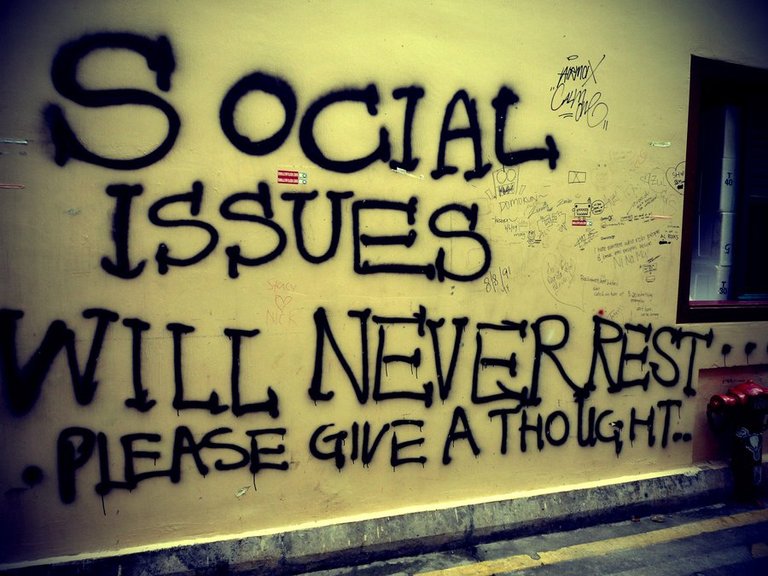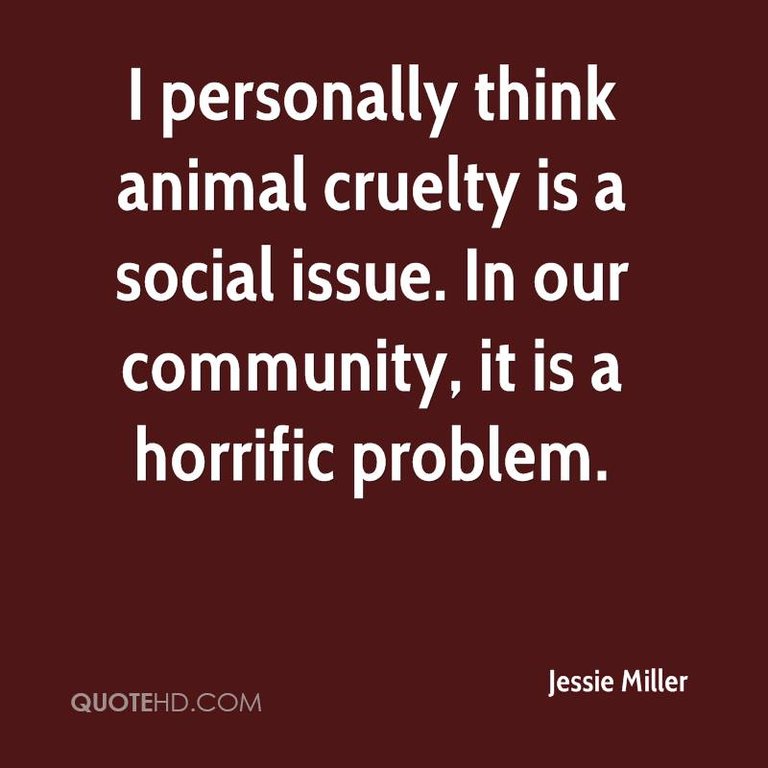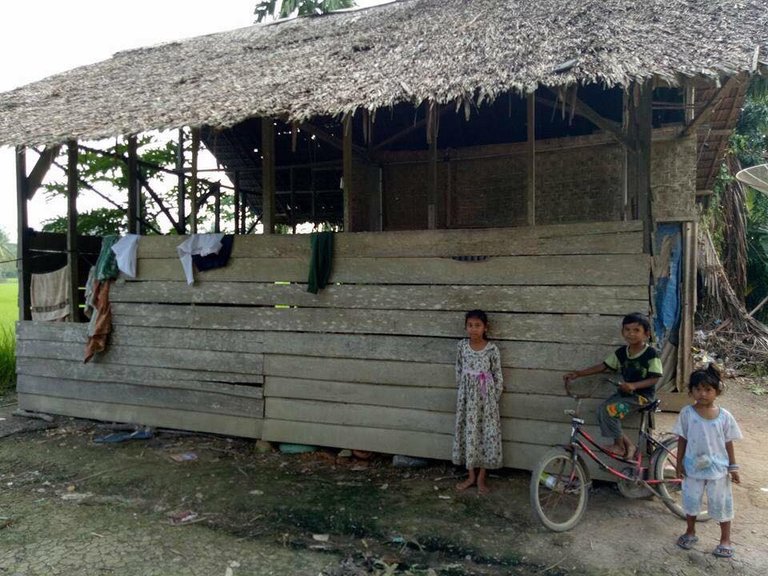History and Emergence of Social Problems And Its Sociological Imagination

Image Source
A social problem rises when a social substance starts to point out a condition or behavior that it sees to be undesirable and needing cure. As a feature of this procedure, it tries to impact open impression of the problem, the explanations behind it, and conceivable answers for it. Since the social substance is making claims about every one of these matters, this perspective is named the cases making process.
Not all endeavors to transform a condition or behavior into a social problem succeed, and in the event that they don't succeed, a social problem does not develop. On account of the assets they have or don't have, some social substances are more probable than others to succeed.
A couple of normal people have little impact in the general population circle, yet masses of people who take part in challenge or other political movement have more noteworthy capacity to enable a social problem to develop. Since legislators have the ear of the news media and different sorts of impact, their perspectives about social problems are regularly extremely compelling. Most investigations of this phase of a social problem concentrate on the endeavors of social change gatherings and the bigger social development to which they may have a place, as most social problems start with base up endeavors from such gatherings.
Once a social gathering prevails with regards to transforming a condition or behavior into a social problem, it as a rule tries to convince the administration to make some move spending and approach making, to address the problem. As a feature of this exertion, it tries to persuade the legislature that its cases about the problem are authentic, that they bode well and are upheld by observational proof. To the degree that the gathering prevails with regards to persuading the legislature of the authenticity of its cases, government activity is a great deal more prone to happen.
Regardless of the possibility that administration activity occurs, social change bunches regularly infer that the activity is excessively restricted in objectives or degree, making it impossible to have the capacity to effectively address the social problem. On the off chance that they achieve this conclusion, they regularly choose to press their requests over again. They do as such by reasserting their cases and by censuring the official reaction they have gotten from the legislature or other built up interests, for example, enormous organizations. This stage may include a considerable lot of pressure between the social change gatherings and these objectives of their cases.
In spite of the restored claims making, social change bunches frequently infer that the administration and set up interests are not reacting satisfactorily to their cases. In spite of the fact that the gatherings may keep on pressing their cases, they in any case understand that these cases may neglect to win a sufficient reaction from built up interests. This acknowledgment drives them to build up their own particular techniques for tending to the social problem.

Image Source
The Sociological Imagination
Numerous people encounter at least one social problems actually. For instance, many individuals are poor and unemployed, many are in weakness, and many have family problems, drink excessively liquor, or carry out wrongdoing. When we catch wind of these people, it is anything but difficult to surmise that their problems are theirs alone, and that they and different people with similar problems are totally to fault for their troubles.
Sociology adopts an alternate strategy, as it focuses on that individual problems are frequently established in problems coming from parts of society itself. Individual inconveniences allude to a problem influencing people that the influenced individual, and also different individuals from society, commonly fault on the person's very own and good failings.
Illustrations incorporate such unique problems as dietary problems, separation, and unemployment. Open issues, whose source lies in the social structure and culture of a general public, allude to social problems influencing numerous people. Problems in the public arena in this manner help represent problems that people involvement. Factories felt that numerous problems usually thought to be private inconveniences are best comprehended as open issues, and he authored the term sociological imagination to allude to the capacity to value the auxiliary reason for singular problems.
To represent Mills' perspective, how about we utilize our sociological imaginations to see some contemporary social problems. We will begin with unemployment, which Mills himself talked about. On the off chance that lone a couple people were unemployed, Mills composed, we could sensibly clarify their unemployment by saying they were languid, needed great work propensities, et cetera. Assuming this is the case, their unemployment would be their very own inconvenience.
In any case, when a great many individuals are out of work, unemployment is best comprehended as an open issue in light of the fact that, the very structure of chances has gave way. Both the right proclamation of the problem and the scope of conceivable arrangements oblige us to consider the monetary and political foundations of the general public, and not only the individual circumstance and character of a diffuse of people.
The high US unemployment rate originating from the serious financial downturn that started in 2008 gives a telling case of the point Mills was making. A huge number of individuals lost their employments through no blame of their own. While a few people are without a doubt unemployed since they are lethargic or need great work propensities, a more auxiliary clarification concentrating on absence of chance is expected to clarify why such a variety of individuals were out of work. Provided that this is true, unemployment is best comprehended as an open issue as opposed to an individual inconvenience.
Another social problem is dietary issues. We as a rule consider a man's dietary issue to be an individual inconvenience that stems from an absence of control, low confidence, or another individual problem. This clarification might be alright to the extent it goes, however it doesn't enable us to comprehend why such a large number of individuals have the individual problems that prompt dietary issues.

Image Source
Maybe more vital, this conviction likewise ignores the bigger social and social strengths that assistance clarify such clutters. For instance, most Americans with dietary issues are ladies, not men.
This sex distinction drives us to get some information about being a lady in American culture that makes dietary problems quite a lot more typical. To start to answer this question, we have to seek the standard of excellence for ladies that underscores a slim body. In the event that this social standard did not exist, far less American ladies would experience the ill effects of dietary problems than do now.
Since it exists, regardless of the possibility that each young lady and lady with a dietary issue were cured, others would take their places unless we could by one means or another change this standard. Seen thusly, dietary issues are best comprehended as an open issue, not similarly as an individual inconvenience.
Americans normally feel that social problems, for example, destitution and unemployment come from individual failings of the general population encountering these problems, not from basic problems in the bigger society. Utilizing Mills' terms, Americans tend to consider social problems as individual inconveniences as opposed to open issues. As Ryan put it, they have a tendency to have confidence in faulting the casualty as opposed to accusing the framework.
To enable us to comprehend a faulting the-casualty belief system, how about we consider why poor kids in urban zones frequently learn next to no in their schools. As indicated by Ryan, an accusing the-casualty approach would state the youngsters' folks couldn't care less about their learning, neglect to show them great investigation propensities, and don't urge them to consider school important.
This kind of clarification, he composed, may apply to a few guardians, however it overlooks an a great deal more critical reason: the tragic state of America's urban schools, which, he stated, are packed, ghastly structures lodging old course readings and obsolete hardware. To enhance the tutoring of kids in urban territories, he composed, we should enhance the schools themselves and not simply attempt to enhance the guardians.
As this illustration recommends, an accusing the-casualty approach focuses to answers for social problems, for example, neediness and lack of education that are altogether different from those proposed by a more auxiliary approach that accuses the framework. On the off chance that we accuse the casualty, we would spend our restricted dollars to address the individual failings of people who experience the ill effects of neediness, lack of education, weakness, dietary problems, and different challenges.
In the event that rather we accuse the framework, we would concentrate our consideration on the different social conditions that record for these troubles. A sociological understanding recommends that the last approach is eventually expected to enable us to bargain effectively with the social problems confronting us today.

Image Source
Reference:
A Primer on Social Problems
By: Steven E. Barkan
Social problems often arise in poor areas like ours, Aceh, Indonesia. There are still many problems, such as the poor, child abuse, low education, and other problems often occur here.
And its a sad truth that there are government officials who like to have such in its community because they use it to lure money. They were given budget assistance and end on not giving it to them. They might give but majority on that assistance goes to personal pocket.
agree with you. Every election of head of region, they will get help and exchange with voice
agree with you. Every election of head of region, they will get help and exchange with voice
Amazing post. How do you see the issue of Gay, lesbian, bisexual and transgender rights generally? Of particular importance to me is the issue of considering transgender women normal women and thus should use the same toilets and rest rooms with our women. Would you be at ease if a transgender female goes to use a toilet in same enclosure with your wife or daughter?
Unfortunately a great sadness for the transgender community is the misinformation the media is feeding them, perpetuated by those with agenda's and even the teachers of our children. There are many studies sighting a multitude of differences between genders that surgery or hormonal therapy will not ever make a difference. Those studies are being suppressed, and we as a society will have yet another nail in our coffin.
I do not agree that the majority rules in the US. It very much appears that a very few people with loud voices and often times little care for their fellow humans often get heard the most. I sight a recent city council meeting in my town that voted 7 to 4 to uphold the Paris climate treaty while the vast majority of the population weren't even aware they were voting on the subject. It seems that we Americans are extremely short sighted in what outcomes will actually be based on our latest trend only to sadly realize that much of the time it's not in the interest of humanity at large. Of course then the blame goes to the individual, not the social order. Something of course is quite mixed up.
To your question, my opinion is that the actual numbers of LGBTQ etc are much, much smaller than media would have us believe. While I strongly believe there is a great deal of confusion regarding these issues, there is hope for them and all of us not to remain in what many times leads to devastating consequences of their own actions. That said, will we become like the Islamic countries and start throwing people off roofs? I sincerely hope not!
If youre going to ask my own opinion, actually, its not an issue to me. I believe that we all have rights to be ourselves.